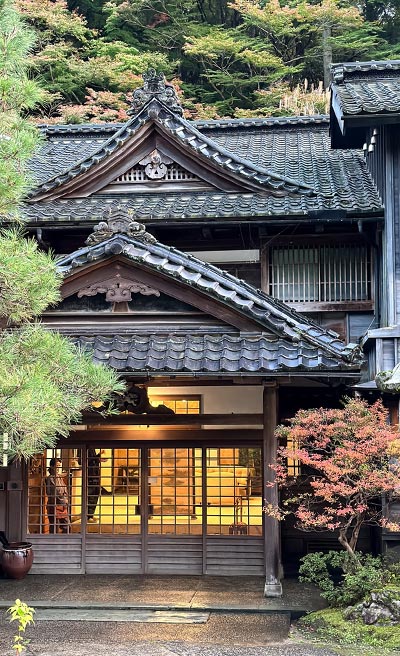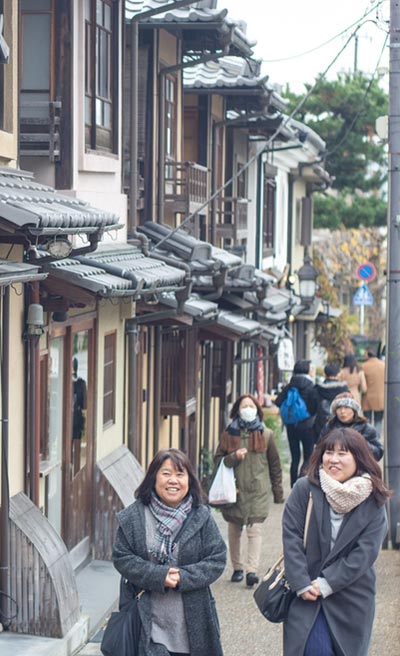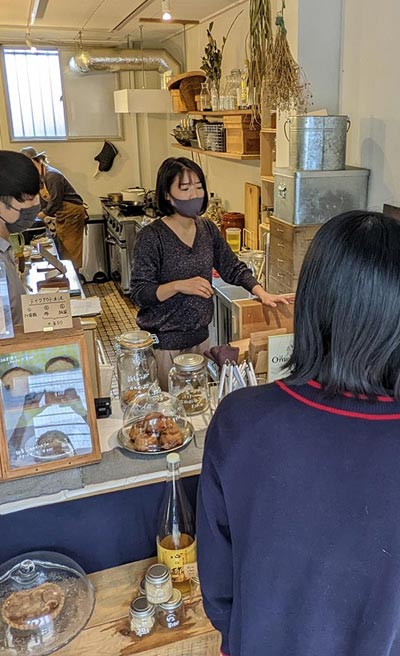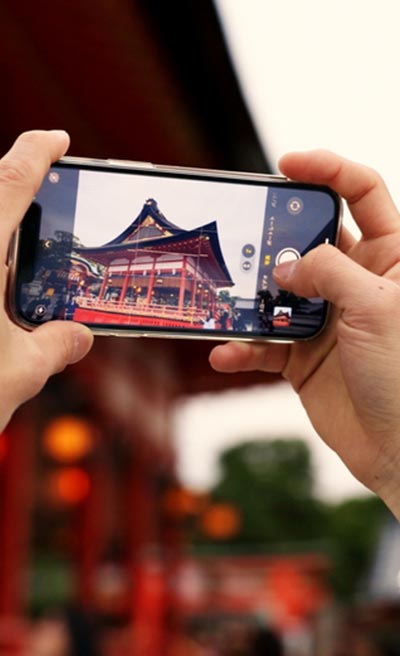Sustainable Travel
8 ways to travel sustainably in Japan
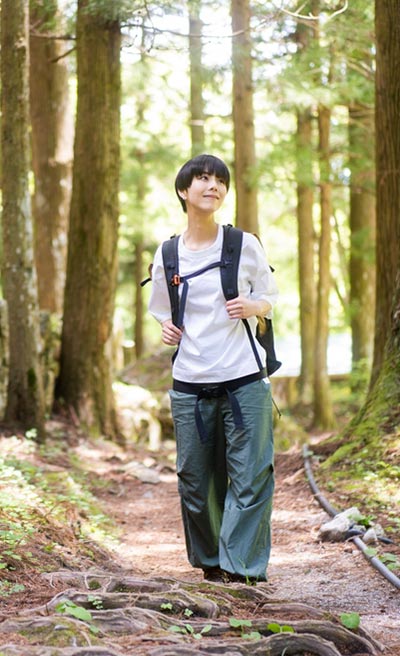
Some recommendations
COMFORTABLE STAY
Choose eco-friendly accommodations
While many hotels and hostels are still far from being the perfect existence of sustainability, there are role models that are inspiring and pioneering change.
Some accommodation like GOOD NATURE HOTEL have eco-certifications and support local sustainable producers. Some accommodation like Tu Casa use renewable energy and implement zero waste for travelers. Some accommodations like Hoshino Onsen Tombo-no-Yu collaborate with local farmers to tackle food loss. Having a closer inspection of our choices, we’ll see that there are a number of sustainable options for us to choose from and match with an accommodation that renosates with us.
Of course, be mindful of your energy use too. Turn off lights, unplug chargers, and don’t leave the air-conditioning on when you leave the room. Bring your own amenities, rather than using the disposables that accommodations. If you have to use the amenities, look for accommodation that uses sustainable alternatives.
SHOW LOVE FOR THE LOCAL SPECIALTIES
Support local businesses
Refuse single-use plastic
Minimize waste
Some travelers will be surprised by the lack of garbage bins in Japan. This comes with the mismatch of convenience, where the easiest-to-buy products produce some form of waste.
We suggest the traveling light. Bring a reusable water bottle and download the mymizu app for free water refills (stop buying water!) Refuse convenience stores’ and supermarkets’ offering plastic bags. Fit in by using your own shopping bag.
Learning the simple separation of rubbish helps too by increasing the success rate for recycling resources. There are specific bins for aluminium cans and plastic bottles.
No more packaging in a packaging
Opt for eco-friendly souvenirs
Japan souvenirs are probably famous for their gift in a packaging in a packaging in another packaging. However, if you search carefully, there are many souvenirs that are sustainable, either made with sustainable methods, utilizing sustainable materials, or made by local artisans. Think of world class knives or pottery, and you’re on the right track.
For example, when in Kyoto, there are various traditional gifts you can get, like UEBA ESOU sells nail polish containing Gofun, an important white pigment in Japanese painting made from the fine powder of scallop shells. You can also look for kintsugi sets (kintsugi is a traditional Japanese restoration technique in which broken parts of ceramics, through the use of lacquer and metal powder.)
Some recommendations
Being an active contributor
Join local conservation efforts and sustainable experiences
Taking an active role in local conservation activities is probably one of the best ways to make friends, especially with people of similar mindset. And there are a number of activities around Japan, especially regions that have strong affection for nature, like Okinawa and Nagano. Art and history museums may have sustainable experiences to offer too, like the Dialogue Diversity Museum, which allows you to experience connecting with different minorities.
Manners maketh a responsible tourist
Respect cultural practices and local communities
As travelers to a different place, we need to understand that we have an impact on the locals and the environment. Understanding and respecting local customs and traditions can lead to more sustainable interactions. For instance, learning a few phrases in Japanese and proper etiquette shows respect and reduces cultural friction, as some Japanese will appreciate the effort.
The best practice is probably reflected in Kyoto City’s code of behavoir, reminding tourists to respect the lives of the locals, the importance of conserving the environment, and encouraging mutual exchange while creating tourism that is resilient to crisis such as disasters.
Getting a guide who knows sustainability
Participate in eco-activities or eco-tours
When most promotional materials and information are made for traditional tourism, sometimes it helps to have someone to open our eyes beyond the veil of consumerism or tourism to find the sustainable options (like Zenbird’s Sustainable Tours.)
There is growing interest in providing sustainable tours in Japan, some catering to individuals, others customized for larger groups, some for just a day, some offering a comprehensive package. All of these emphasize sustainability, focusing on traditional, low-impact lifestyles. One of our favourite activities is to go into the forests of Japan to refresh our well-being and realign our spirit, like shinrin-yoku, or forest bathing.
Become a changemaker
Educate yourself and others
Take the time to learn about sustainable practices and share your knowledge with fellow travelers. By understanding what traveling sustainably is and sharing what sustainable experiences you had, you are encouraging responsible travel. Reading about Japan’s social and environmental challenges and sustainability efforts can also make your journey more meaningful.
But “educating” yourself doesn’t need to be dreary like schooling. Use resources like Zenbird Media to learn about how to think about sustainable tourism and follow the latest sustainable travel news. Or if you want to find sustainable spots and experience, leverage on the research on Zenbird.life, guides like the Sustinable City Guide, or directories or certification like Food Made Good.

